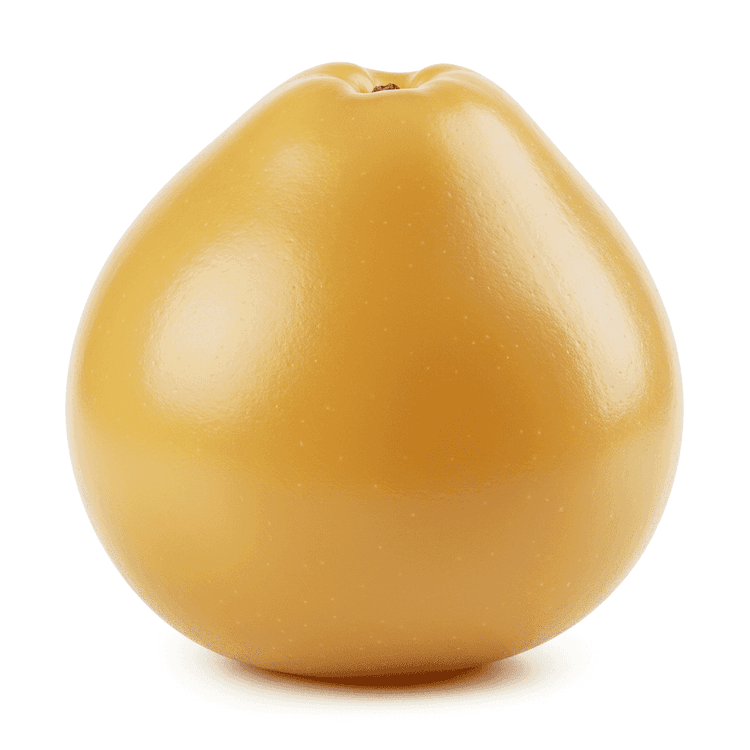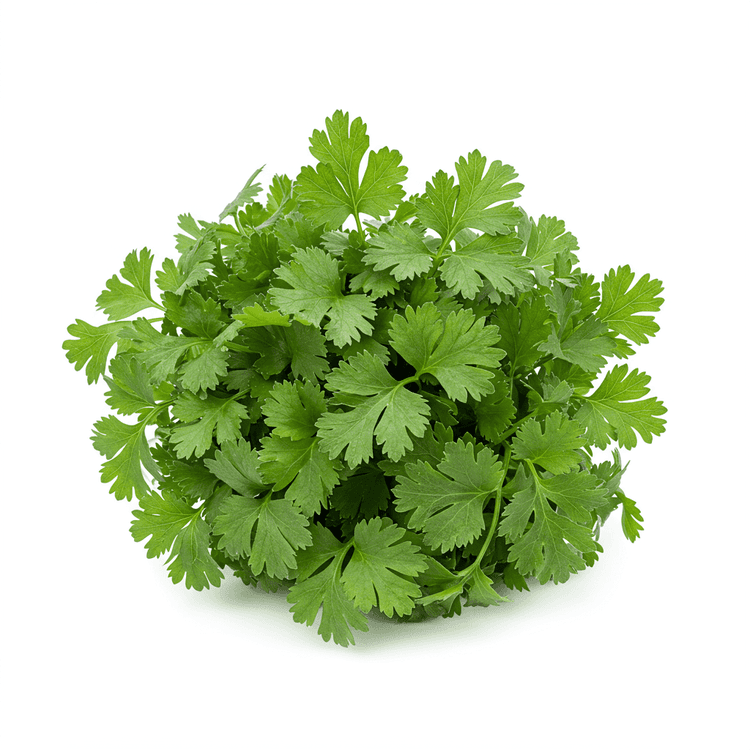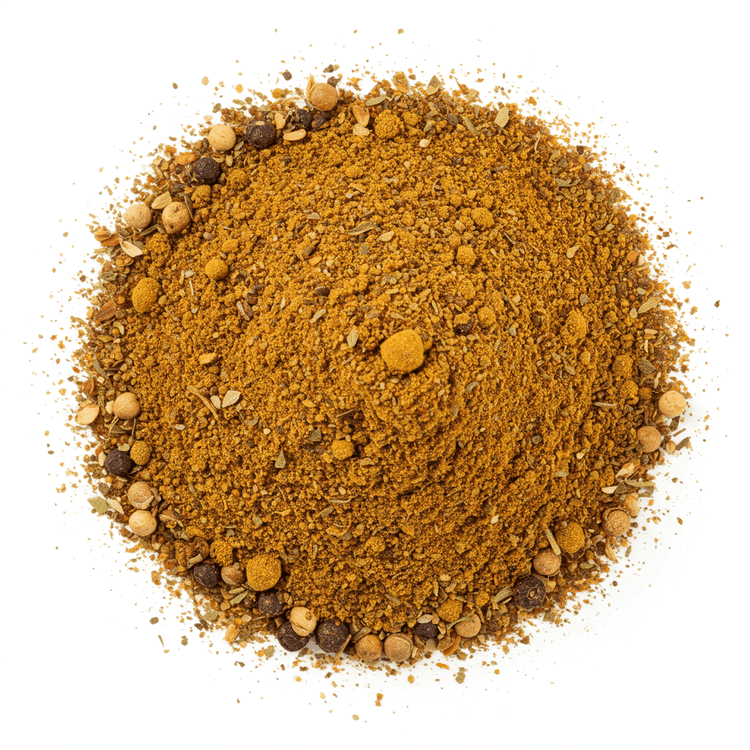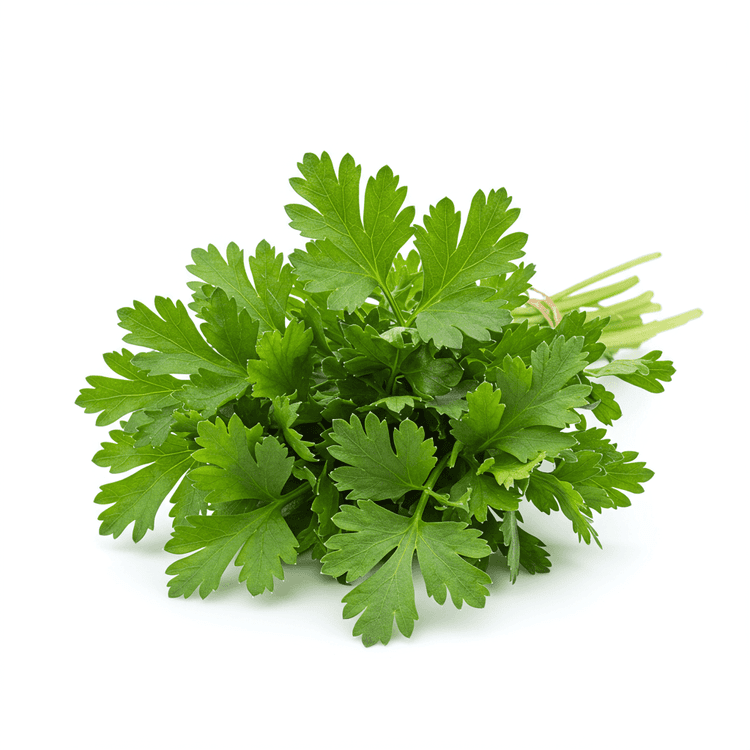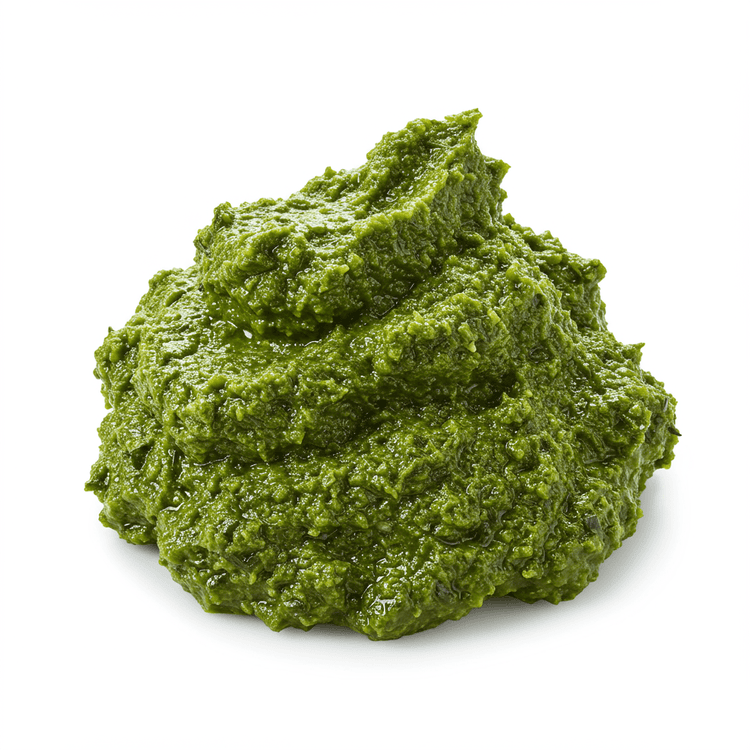
Herb Paste
Herb paste is a concentrated blend of fresh herbs, often finely chopped or pureed and mixed with oil, water, or another liquid to create a smooth, flavorful condiment. The flavor profile of herb paste depends entirely on the herbs used, ranging from bright and grassy with parsley and cilantro to pungent and savory with basil and oregano. The texture is typically smooth and spreadable, and the color reflects the dominant herbs in the mixture. Herb pastes are a versatile ingredient for adding a burst of fresh, vibrant flavor to a variety of dishes. Using fresh herb paste ensures a fresher and more aromatic flavor than dried herbs.
Common Uses
- Herb paste can be stirred into sauces, soups, and stews to add a fresh herbal flavor, especially towards the end of cooking to preserve the herbs' volatile oils and aroma.
- Herb paste is ideal as a marinade for meats, poultry, or seafood, imparting a deeper, more intense flavor than simply sprinkling dried herbs on top.
- Combine herb paste with softened butter or cream cheese to create a flavorful spread for bread, crackers, or vegetables; this is also great for stuffing chicken breasts.
- Herb paste can be whisked into salad dressings or vinaigrettes to enhance the herbal notes and add a fresh, aromatic dimension to your salads.
- Stir herb paste into dips like hummus, guacamole, or yogurt-based dips for an extra layer of herbaceous flavor and complexity. This is great as a flavor enhancer for dips and can quickly improve the taste.
- Drizzle herb paste over grilled vegetables, roasted potatoes, or pasta dishes as a finishing sauce to add a burst of fresh flavor and visual appeal.
Health Benefits
- May offer antioxidant properties due to the herbs included.
- Could provide anti-inflammatory effects, depending on the specific herbs used.
- Can be a low-sodium way to add flavor compared to salt.
- May contribute to digestive health based on the herbal composition.
- Offers a concentrated source of vitamins and minerals, varying with the blend of herbs.
- May enhance immune function due to the presence of beneficial phytonutrients in herbs.
Chefadora AI is here.
Experience smarter, stress-free cooking.
Storage Tips
Herb paste should always be stored in the refrigerator to maintain its freshness and prevent spoilage. Transfer the paste to an airtight container or wrap it tightly in plastic wrap. A thin layer of olive oil on top can help prevent oxidation and discoloration. It typically lasts for 1-2 weeks when properly refrigerated. If you need to store it for longer, consider freezing it in small portions using an ice cube tray; once frozen, transfer the cubes to a freezer bag for up to 2-3 months.
Marnirni-apinthi Building, Lot Fourteen,
North Terrace, Adelaide, South Australia, 5000
Australia
